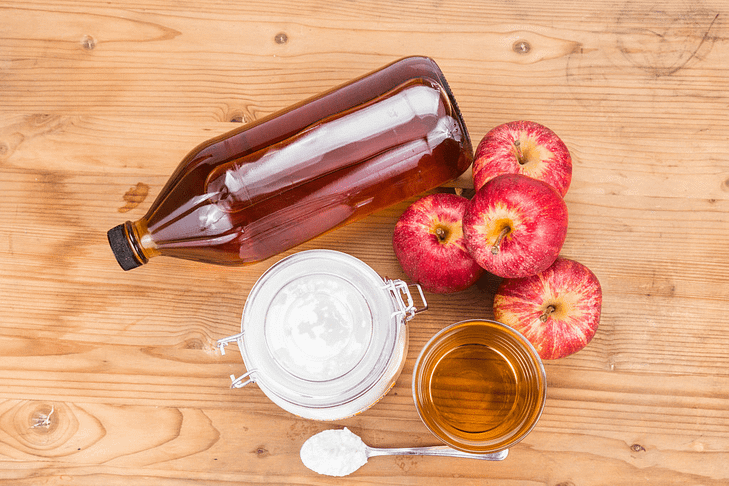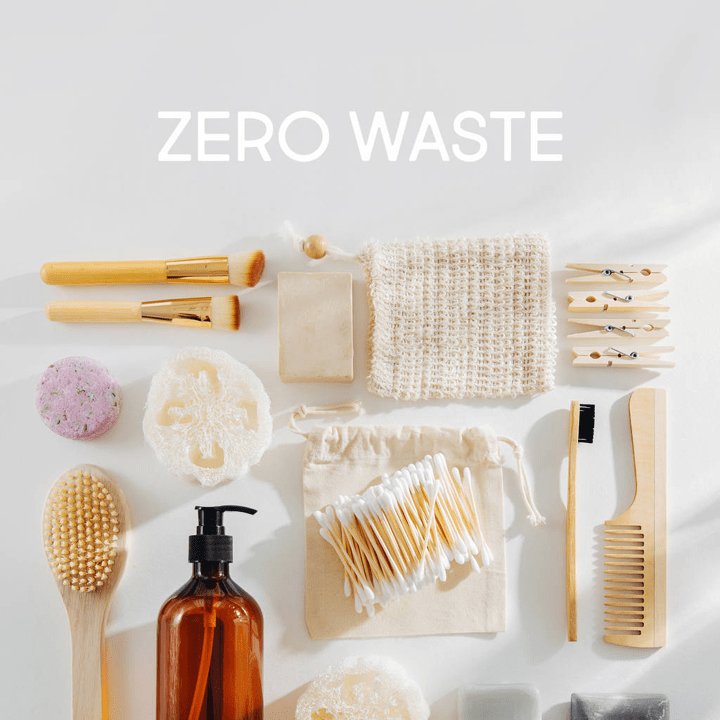Are you tired of relying on harsh chemicals to clean your home?
In this comprehensive guide, we will explore the wonders of vinegar and baking soda as natural cleaning agents. These two humble ingredients, when combined, can tackle a wide range of cleaning tasks effectively and without harmful side effects.
From kitchen countertops to bathroom tiles, we've got you covered with our handy tips and tricks.
Get ready to transform your cleaning routine with the power of vinegar and baking soda!
Introduction to Vinegar and Baking Soda
Vinegar and baking soda are two versatile cleaning agents that have been used for centuries.
Vinegar, a fermented liquid made from various sources such as apples, grapes, or grains, contains acetic acid, which gives it its cleaning properties. Baking soda, also known as sodium bicarbonate, is a mild alkali that reacts with acids like vinegar to produce carbon dioxide, creating a fizzing effect.

The combination of vinegar and baking soda creates a powerful cleaning solution that is safe, affordable, and environmentally friendly.
Unlike commercial cleaners that often contain harmful chemicals, vinegar and baking soda are non-toxic and do not pose health risks.
They are also readily available in most households, making them an ideal alternative for those seeking a more natural approach to cleaning.
Benefits of Cleaning with Vinegar and Baking Soda

1. Environmentally Friendly
One of the biggest advantages of using vinegar and baking soda for cleaning is their minimal impact on the environment.
Unlike conventional cleaners that contain toxic chemicals, these natural alternatives are biodegradable and do not contribute to air or water pollution.
By opting for vinegar and baking soda, you can reduce your carbon footprint and promote a cleaner, greener planet.

2. Cost-Effective
Another significant benefit of vinegar and baking soda is their affordability.
Commercial cleaning products can be expensive, especially if you need different ones for various surfaces. With vinegar and baking soda, you only need two ingredients that are inexpensive and readily available in most households.
By using these natural alternatives, you can save money while still achieving a sparkling clean home.

3. Safe for Children and Pets
Many commercial cleaners contain toxic ingredients that can be harmful if ingested or inhaled.
Vinegar and baking soda, on the other hand, are safe for children and pets. You don't have to worry about exposing your loved ones to harmful chemicals while cleaning your home.
This makes vinegar and baking soda an excellent choice for families with young children or pets.

4. Versatile Cleaning Abilities
Vinegar and baking soda are incredibly versatile in their cleaning abilities.
They can be used on a wide range of surfaces, from kitchen counters to bathroom fixtures. Whether you're dealing with stubborn stains, grease buildup, or unpleasant odors, vinegar and baking soda can come to the rescue.
In the following sections, we'll explore specific cleaning tasks where vinegar and baking soda excel.
cleaning tips with vinegar and baking soda

1. Removing Grease from Stovetops
Grease buildup on stovetops can be a hassle to remove, but vinegar and baking soda make it easier.
Start by sprinkling baking soda over the greasy areas. Then spray vinegar over the baking soda until it starts to fizz. Allow the mixture to sit for a few minutes before scrubbing the surface with a sponge or cloth.
Finally, rinse with water and wipe dry for a sparkling clean stovetop.

2. Freshening up the Refrigerator
To eliminate odors and freshen up your refrigerator, mix equal parts water and vinegar in a spray bottle.
Spray the mixture inside the refrigerator, focusing on any areas with strong odors. Wipe down the surfaces with a clean cloth or sponge soaked in the solution.
Vinegar's natural antibacterial properties will help kill germs while removing unpleasant smells.

3. Cleaning Microwave Spills
Microwave spills can be tough to clean, but vinegar and baking soda can make the job easier.
Fill a microwave-safe bowl with equal parts water and vinegar. Place it in the microwave and heat on high for a few minutes until the mixture comes to a boil. The steam produced will help loosen food particles and stains.
Carefully remove the bowl (it will be hot!) and wipe down the interior with a cloth or sponge soaked in the vinegar-water solution.

4. Tackling Soap Scum on Shower Doors
Soap scum can be stubborn to remove, but vinegar combined with baking soda can work wonders.
Create a paste by mixing equal parts baking soda and water. Apply the paste onto a sponge or cloth and scrub the soap scum on shower doors or tiles.
For tougher build-up, spray some undiluted vinegar onto the affected area before scrubbing with the baking soda paste.
Rinse thoroughly with water afterward.

5. Removing Hard Water Stains from Faucets
Hard water stains on faucets can be unsightly, but vinegar can help dissolve them effectively.
Soak a paper towel or cloth in white vinegar and wrap it around the faucet or affected area. Leave it for at least an hour or overnight if possible.
The acidity of the vinegar will break down the mineral deposits, making them easier to wipe away with a clean cloth or sponge.

6. Banishing Mold and Mildew from Grout
Mold and mildew thrive in moist environments like bathrooms, but vinegar's antimicrobial properties can help combat them naturally.
Create a mixture of equal parts white vinegar and water in a spray bottle. Spray it directly onto moldy grout lines or surfaces affected by mildew.
Let it sit for about 15 minutes before scrubbing with a brush or sponge.
Rinse thoroughly with water to remove any residue.

7. Brightening Whites
To keep your white clothes bright and fresh, add half a cup of baking soda to your regular laundry detergent when washing whites.
Baking soda helps remove stains and odors while boosting the detergent's cleaning power.
For extra whitening power, add half a cup of white vinegar to the rinse cycle instead of fabric softener.

8. Removing Odors
For clothes with stubborn odors like sweat or pet smells, add half a cup of white vinegar to the washing machine during the rinse cycle.
The acidity of vinegar helps neutralize odors effectively without leaving behind any strong scent.

9. Softening Fabric
Instead of using chemical-based fabric softeners, opt for white vinegar as a natural alternative.
Add half a cup of white vinegar to the rinse cycle to soften fabric and reduce static cling without any harsh chemicals.
10. Cleaning Patio Furniture
Mix equal parts water and white vinegar in a spray bottle.
Spray the solution onto patio furniture made of plastic or metal surfaces affected by dirt or mildew. Let it sit for a few minutes before scrubbing with a brush or sponge.
Rinse thoroughly with water afterward.

11. Revitalizing Garden Tools
Over time, garden tools can become rusty or caked with dirt.
To revitalize them, create a paste by mixing baking soda with water. Apply the paste onto the tools using a cloth or sponge, scrubbing away rust or dirt buildup gently.
Rinse thoroughly with water afterward.

12. Removing Weeds Naturally
Say goodbye to harmful weed killers by using vinegar as a natural weed deterrent!
Fill a spray bottle with undiluted white vinegar and spray it directly onto weeds growing in cracks on your driveway or patio.
The acidity of vinegar will kill the weeds naturally without harming surrounding plants or soil.

Precautions When Using Vinegar and Baking Soda
While vinegar and baking soda are generally safe for most surfaces, it's essential to exercise caution when using them in certain situations:
- Avoid using vinegar on marble or granite surfaces as its acidity can cause etching over time.
- Do not mix vinegar with bleach or hydrogen peroxide as this combination can produce harmful fumes.
- Always spot test any new cleaning solution on an inconspicuous area before using it on larger surfaces.
- Use gloves when handling vinegar or baking soda if you have sensitive skin.
Additional cleaning tips you may find helpful:
Looking for recommendations for the cleaning supplies to get?
Continue reading on:
- 20 Best Cleaning Solution for Hardwood Floors
- 20 Best Cleaning Robots
- 20 Best Cleaning Gloves
- 30 Best Cleaning Laundry Detergents
- 30 Best Cleaning Solution for Laminate Floors
- 50 Best Cleaning Tools
- 50 Best Cleaning Supplies
- 59 Best Cleaning Products
- 20 Top Cleaning Gadgets for a Sparkling Home
- 21 Top Cleaning Tools for a Sparkling Home
- 10 Top Cleaning Products
Conclusion
In conclusion, vinegar and baking soda are two powerful natural cleaning agents that can transform your cleaning routine.
From kitchens to bathrooms, laundry to outdoor spaces, these ingredients excel at tackling various cleaning tasks effectively without harmful side effects or environmental impact.
By incorporating vinegar and baking soda into your cleaning arsenal, you can achieve a sparkling clean home while promoting a healthier lifestyle for yourself and the planet!
